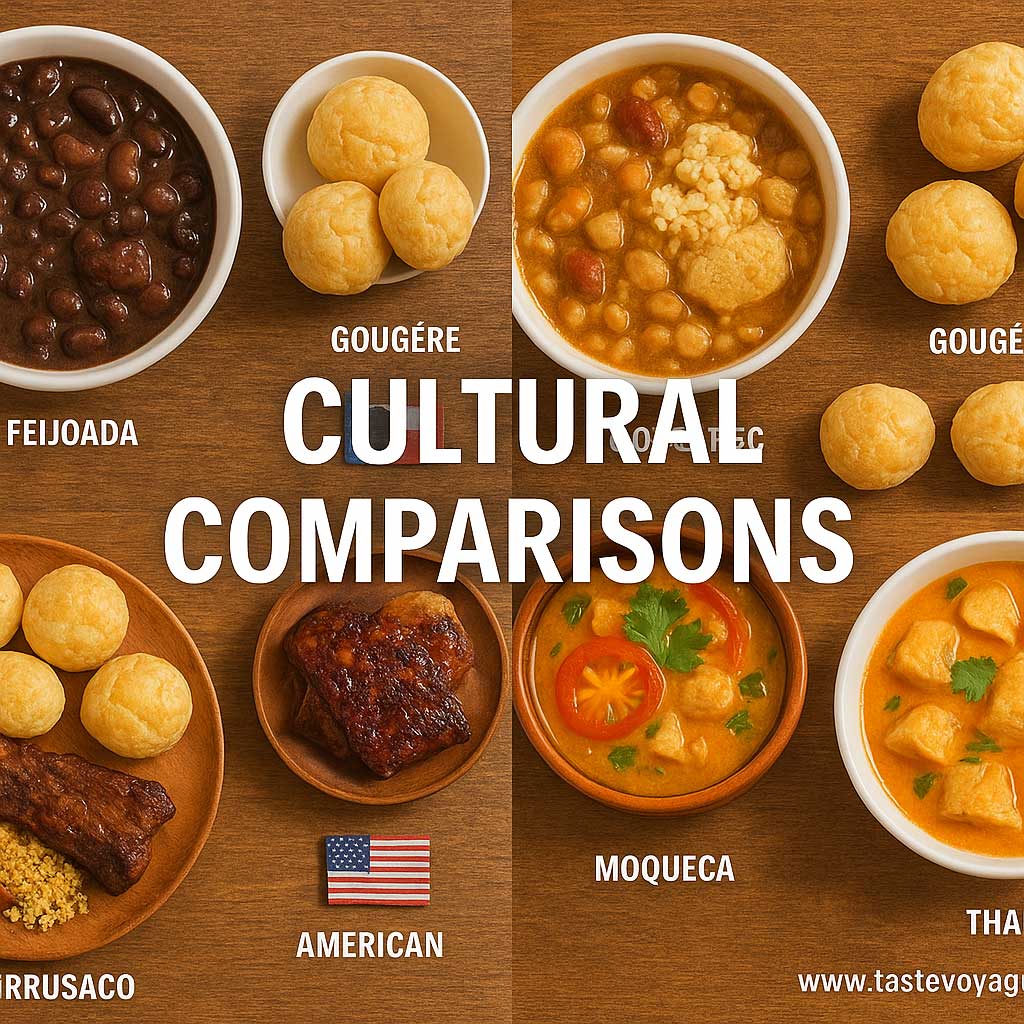Brazilian vs Korean BBQ: Which Is Better?
Travel the World Through Food >> Brazilian Cuisine>>Cultural Comparisons>> Brazilian vs Korean BBQ: Which Is Better?
Brazilian vs Korean BBQ: Which Is Better?
Brazilian vs Korean BBQ Comparison: A Celebration of Culinary Traditions
Barbecue is a universal delight that brings people together through rich flavors, shared experiences, and cultural stories. Among the many styles of barbecue enjoyed worldwide, Brazilian and Korean BBQ stand out as vibrant representations of their respective culinary heritages. Exploring these two beloved traditions offers a fascinating glimpse into how food can reflect cultural values, social bonds, and culinary artistry.
Cultural Roots and Significance
Brazilian BBQ, often called “churrasco,” is a testament to the nation’s love for social gatherings and outdoor festivities. Originating from Southern Brazil, churrasco evolved into a communal experience that unites family and friends around a grill. The emphasis is on simple, high-quality meats cooked over open flames, highlighting the importance of shared enjoyment and tradition. The technique and presentation—such as skewering meats and serving them with fresh, vibrant condiments—embody the Brazilian spirit of warmth and hospitality.
Korean BBQ, known locally as “gogigui,” is deeply rooted in Korean dining culture, emphasizing harmony, balance, and communal participation. It’s often enjoyed in a lively setting where diners grill thinly sliced meats at their table, creating a participatory meal that fosters connection. Beyond its culinary appeal, Korean BBQ reflects values of patience, respect, and togetherness. Side dishes, or “banchan,” accompany the main course, enriching the experience with diverse flavors and textures, and demonstrating the Korean dedication to harmony in taste and presentation.
Culinary Techniques and Flavor Profiles
Brazilian BBQ is celebrated for its robust, smoky flavors and straightforward seasoning. Meats such as beef, chicken, and sausage are often seasoned simply with coarse salt to highlight their natural taste. The use of open-flame grilling imparts a distinctive char and aroma, making each bite flavorful and satisfying. The presentation is typically rustic, with meats sliced directly from skewers onto plates, emphasizing freshness and simplicity.
Korean BBQ, on the other hand, features delicately marinated meats that offer a complex interplay of flavors. Common marinades include soy sauce, garlic, sesame oil, and sugar, creating a harmonious balance of salty, sweet, and savory notes. The grilling process enhances these flavors while adding a smoky touch. The experience is often accompanied by an array of side dishes—kimchi, pickled vegetables, rice, and dipping sauces—that complement and elevate the main course.
Social and Culinary Experience
Both Brazilian and Korean BBQ are designed to be social meals, fostering conversation and shared enjoyment. In Brazil, the act of serving meat directly from skewers creates a relaxed, convivial atmosphere. Guests often indulge in multiple types of meat, enjoying the variety and abundance in a festive setting.
In Korea, the interactive nature of grill-at-the-table dining encourages participation. Diners often cook their own slices of meat, fostering engagement and a sense of ritual. The inclusion of diverse side dishes ensures a well-rounded, communal meal that emphasizes balance and harmony.
A Cultural Exchange Through Food
Comparing Brazilian and Korean BBQ reveals how each tradition celebrates craftsmanship, social bonds, and cultural identity. While their techniques and flavors differ, both styles demonstrate a deep appreciation for sharing good food in good company. These culinary traditions enrich the global tapestry of barbecue cuisine and inspire appreciation for the unique ways different cultures express their hospitality through food.
In conclusion, whether you prefer the smoky simplicity of Brazilian churrasco or the interactive, flavorful experience of Korean gogigui, both offer more than just a meal—they offer a story, a tradition, and a moment of connection. Exploring these styles invites us to savor not just the flavors, but the cultural values that make each unique and special.
